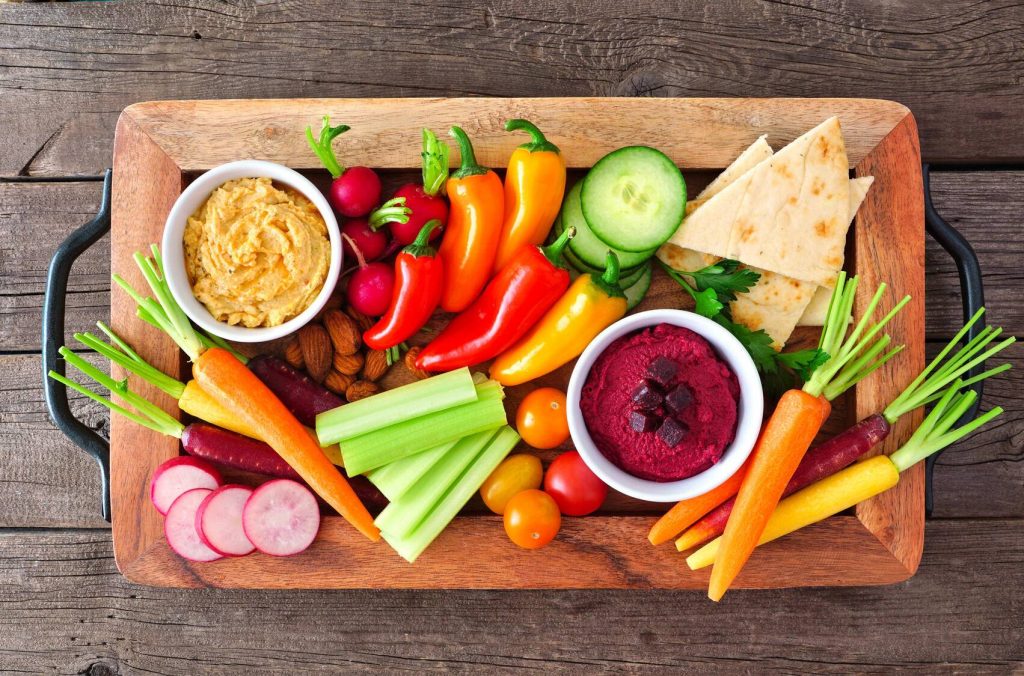-
Mayo Clinic Q and A: Snacking for meals

DEAR MAYO CLINIC: During warm weather months, I find myself eating less formal meals and, instead, reaching for more snacks. I also tend to exercise less when it's hot outside. Do you have advice on how to ensure I'm snacking healthfully as I realize the potential to overeat and not be as active?
ANSWER: Regardless of the time of year, maintaining healthy habits is important for good health. This includes exercise, eating a balanced diet and maintaining a healthy weight.
When snacking is done correctly, it can give you a boost of energy between meals, help meet nutrient needs for the day and help keep hunger at bay to prevent overeating at the next meal. And managing your hunger can help you maintain a healthy weight and reach weight-loss goals.
Consider these snacking tips to keep you feeling good as you adjust your eating schedule:
Plan your snacks. What do you like to eat? Make a list of various nutrient-rich foods that would work as a snack. Focus on incorporating whole foods, whole grains and low-fat dairy products. Whole fruit or vegetables, air-popped popcorn, fat-free or low-fat yogurt, and nut mixes are all great options. Stay away from packaged items high in calories, fat and sodium, such as chips, candy or cookies.
Prepare your snacks properly. Package snack items into more convenient serving sized portions. Consider purchasing single-serve containers or preparing small servings of snacks in advance. Eating out of a package often can lead to mindless eating and result in eating more than intended. Also, it will make it easier if you take lunch to work, for instance, to help lessen the temptation of less-healthy options, such as from a vending machine.
Make healthy snacks easily accessible. Put fruits and vegetables in easily accessible locations, such as the front of your fridge or counter, which will stop you from reaching for unhealthy foods when you're hungry. Throw a bag of dried fruit or other snacks in your purse, pocket or backpack to take with you out of the house. This will help you avoid buying unhealthy snacks.
Pay attention to protein and combine snacks to make a more satisfying meal. To ensure you are being fulfilled, combine carbohydrates, protein and fat for long-lasting, satisfying snacks. Aim for snacks to be less than 200 calories. Good sources of protein include hard-boiled eggs, pouches of seasoned tuna, cheese sticks, cottage cheese, yogurt with no added sugar, or soups made with lots of vegetables and legumes.
A healthy go-to snack could be apple slices or baby carrots dipped in small amounts of peanut butter or almond butter and sprinkled with cinnamon.
Eat when you are hungry — not bored. In general, a person will be hungry three to four hours after a meal. But having snacks around can lead to overeating. When you feel hunger setting in, be sure to ask yourself, "Am I physically hungry, or am I mind hungry —bored, stressed or frustrated?" before you grab for a snack. If you find you are, in fact, experiencing physical hunger, it’s time to grab a filling, satisfying snack. If you realize you were reaching for a snack because of mind hunger, feed the urge by doing another activity, such as going for a walk, talking with a friend on the phone, playing a game or meditating.
Review your fridge and pantry. While stocking up on healthy food choices, take time to also purge unhealthier options from your home. Remove foods that you know will tempt you.
Be aware of your weight. If you're concerned about gaining weight, track your intake of snacks.
There are several apps you can use to track your eating and exercise routines. Women need 10 calories per pound per day to maintain their weight, and men need 11 calories per pound per day. Keep track of what and how much you eat, and build in enough exercise so you can control weight gain. — Compiled by Mayo Clinic staff
****************************
Related Article
- Mayo Clinic Minute: Transforming snack time with healthy options published 9/7/22







